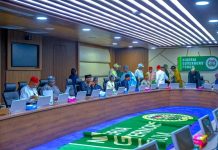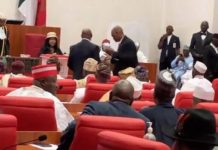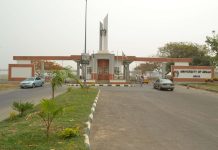At least 20 suspects believed to be involved in the attack killing of 17 soldiers in Okuama community in Delta State, on Thursday have been arrested.
This comes after General Musa ordered the arrest of those who gruesomely killed troops of 181 Amphibious Batallion in Delta State while Nigerian Army refuted claims of reprisal attacks.
Meanwhile, there was an accusation from a community leader, who spoke on condition of anonymity, alleging mass arrests and killings by soldiers.
With reference to the tragic events of Odi in 1999, he expressed concern that the military’s actions could escalate the situation.
The community leader speaking further, also claimed that soldiers were targeting innocent civilians instead of focusing on apprehending the perpetrators, stressing on the dangers of indiscriminate violence.
In his words, “If it involves targeted arrests, nobody will complain about it, but mass killings are unacceptable. Soldiers entering a community and opening fire is a terrible act.”
Supporting his claims, he said reports surfaced on Monday suggesting that deployed soldiers in Okuama burned houses as residents fled the area.
Going memory lane on the actual cause of the clash, it could be recalled that on Thursday when a communal land dispute in Bomadi and Okuama communities turned violent.
This transcended into Irate youths who reportedly ambushed and killed at least 17 soldiers from the 181 Amphibious Battalion who were deployed to mediate the conflict.
News of the soldiers’ deaths sparked fear and a mass exodus from Okuama and neighboring Okolaba in Bomadi Local Government Area. Residents fled as soldiers took control, with unverified reports claiming soldiers set houses ablaze in retaliation.
The military later responded and the Defence Headquarters released the names of the slain soldiers on Monday as they vowed arrest culprits and to pursue justice in adherence to the rules of engagement and respect for human rights.
So far, investigation is ongoing with the aim to restore normalcy to the affected communities.


























